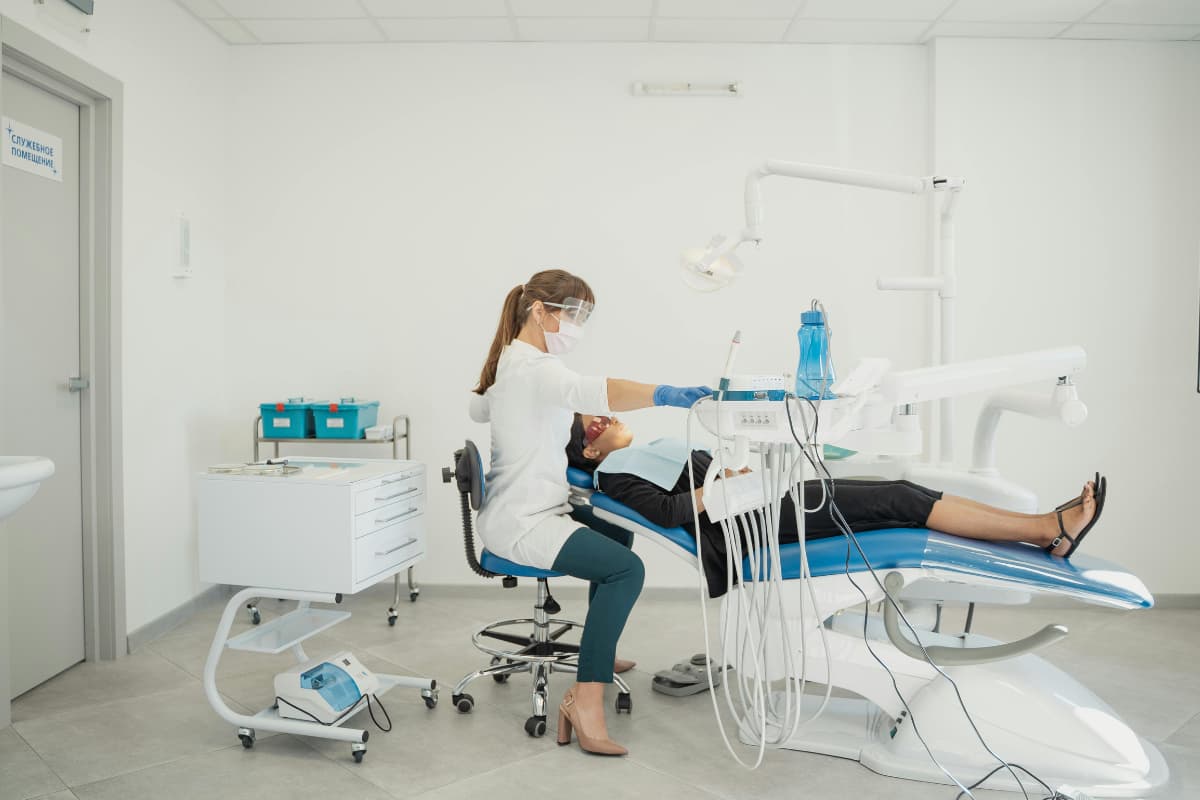Since the adoption of the Digital Care Act (DVG) of 2019 and the supply problems during the Covid-19 pandemic, it is clear that Germany's healthcare system must become more digital — including digitization in medical practices. This is met with mostly positive feedback from experts.
According to a survey by bitkom, 67 percent of all surveyed doctors see digitization primarily as an opportunity. This is also the conclusion reached by the current Digitalization practice barometer the Federal Association of Statutory Health Insurance Physicians. After all, it offers many opportunities to make everyday practice more patient-friendly and efficient and to relieve staff. But what is the current state of the digitalization of healthcare in Germany?

Digitalization in healthcare: Germany
According to a study by consulting firm Deloitte, the assessment of the current state of digitalization can be summarized with one word in particular: “slowly.” One of the reasons for this: Digitalization has been pursued only reluctantly in recent decades — even by legislators. For example, the legal requirements have only recently been created for the introduction and use of:
The challenges in medical practice
According to statistics on the introduction of digital technologies in healthcare organizations, bureaucracy in healthcare and the costs of new technologies are among the biggest obstacles to progress. Last but not least, major data protection concerns are preventing many doctors from digitizing their medical practices. As a result, they miss out on valuable innovations in everyday practice. Significantly more is now possible than is standard in normal operation. The situation is different in some neighboring European countries and in international comparison.

Digitalization in an international comparison
International statistics and rankings over the last 20 years repeatedly and clearly show that Germany is lagging behind in terms of digitization of the healthcare system. A study by the Bertelsmann Foundation also sees Germany in penultimate place.
These countries set a good example
Denmark and Estonia, for example, are showing how it works: In the two European countries, it has long been common practice for patients to view their medical records, including their examination results and medication plans, online and share them with their treating doctors. Germany also has some catching up to do compared to Canada. There is the use of Video consultation already widely used. Israel is going one step further in using digital technologies and also uses artificial intelligence as standard for early cancer detection.

Germany is lagging behind in areas where other countries regularly rely on digital technologies. But that can be changed!
Digital medical practice: With these measures, it works
Digitizing your medical practice doesn't have to be complicated — quite the opposite! The technologies make everyday practice much easier for you, your staff and your patients:
- Online appointment booking: No more waiting on hold! Instead of picking up the phone, patients can simply make their preferred appointment electronically. According to a study, this is the most popular digital offering in healthcare.
- Digital billing systems: Save time now! You can avoid the high administrative burden with software solutions based on are specialized in billing private and IGEL services.
- Electronic health records (ePA): All information just a click away! With ePA, you always know immediately What medications your patients are taking, what treatment measures are ongoing and much more.
- Practice Management Systems (PVS): It's all coming together here! With a PVS You always have an overview of everything: from patient records and payment information to master data and declarations of consent. Many providers also offer a high degree of customization so that the software is optimally adapted to your requirements.
- Video consultation: If it is not possible for your patients to come to the practice in person, a digital consultation may be the solution. Video consultations also reduce waiting times and help close supply gaps in rural areas.
- Digital anamnesis: Simply create the basics! This is because anamnesis is an important diagnostic measure. Therefore, collect all information completely and efficiently with digital tools such as Nelly.
In addition to these options, there are other e-health options — such as E-prescription for prescription drugs or Health appsthat remind you to take them regularly.
Tip: For more information, visit Digitalization guide the Apobank.
Medical practice digitization made easy with Nelly
Start digitizing your medical practice now. Nelly enables you to take advantage of the digital opportunities of the future today. Because with the software, many everyday processes can be completed with just a few clicks:
- anamnesis and master data collection
- Signing of Documents and treatment contracts
- Payment method selection
- Automatic billing of private and IGEL services

That's how Nelly works
Nelly is very easy to use — even for patients and staff who are not “digital natives”!
- Patients fill out the medical history form on their own smartphone and store their preferred payment method.
- Many documents and treatment contracts can be signed with one click.
- All data is automatically saved in the Nelly practice portal.
- After treatment, Nelly automatically initiates billing.
Now you too can create a digital workflow in your practice. Wir advise you without obligation and free of charge to your individual case!
The personal names used in this article always refer equally to all persons. Dual naming and alternate names are omitted in order to improve readability.












